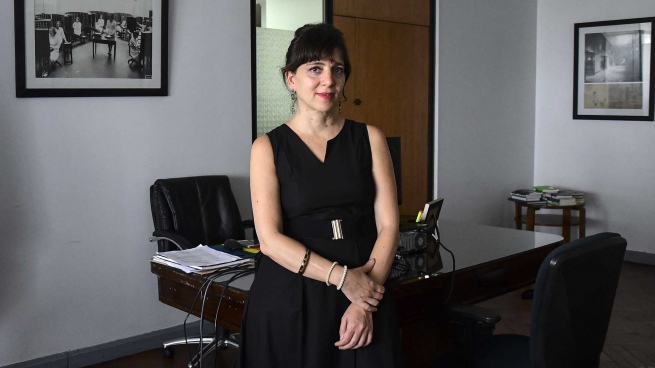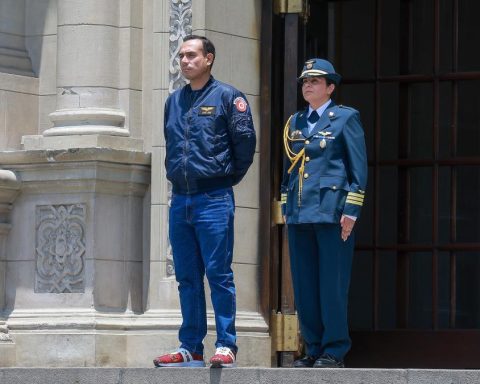The National Director of Economy, Equality and Gender, Mercedes D’Alessandrohighlighted this Wednesday that “women in Argentina are protagonists of the recovery” of activity and employment.
At the end of the third quarter of 2021 “we saw record rates of economic participation and employment for women,” said the official of the Ministry of Economy through her account on the social network Twitter.
“The trend was reaffirmed: they closed 2021 with a year-on-year increase in employment of 4.5 percentage points. In addition, between 2020 and 2021, their unemployment rates decreased from 11.9% to 7.7%. In young women, this improvement was almost 10 points: 26% to 16.2%”, underlined D’Alessandro.
Women closed 2021 with a year-on-year increase in employment of 4.5 pp. In addition, between 2020 and 2021, their unemployment rates decreased from 11.9% to 7.7%. In young women, this improvement was almost 10 points: 26.0% to 16.2%” pic.twitter.com/O0NKvgZIKb
– Mercedes DAlessandro ? (@dalesmm) March 23, 2022
The official referred in this way to the data for the last quarter of 2021 reported today by the Indec on employment and specifically with regard to gender.
“This result is unprecedented in the region. According to the ILO, of the 4.5 million jobs that have yet to be recovered in Latin America since the start of the Covid pandemic, 4.2 million correspond to women.” Only in Argentina and Bolivia “ women recovered the levels prior to the pandemic”, pondered D’Alessandro.
In addition, Argentina “reached record levels of economic participation and employment since 2003. The recovery in our country stands out, even compared to the evolution of the United States labor market.”
This situation in Argentina is the product of an early diagnosis: we knew that crises affect women more. In this way, in 2020 measures were launched to cushion the unequal impact of the pandemic through coordinated work between ministries. pic.twitter.com/jnIwpbMZoi
– Mercedes DAlessandro ? (@dalesmm) March 23, 2022
This situation in Argentina “is the product of an early diagnosis: we knew that crises affect women more,” said the official, recalling that during 2020 “measures were put in place to cushion the unequal impact of the pandemic through an articulated work between ministries and together with the governments of the provinces”.
Already last year, measures were enacted “so that the reactivation had as a premise to strengthen care and add women to sectors with a large employment multiplier, generally masculinized,” he specified.
Throughout this work process “for Argentina to see records of activity and employment today, there are two central axes: the first is the strengthening of the care system, which drives the entire economy because it allows reconciling work and family life, improving the quality of jobs for women and the second, the labor insertion of women in strategic sectors, such as technology, construction, industry”, said D’Alessandro.
Gender policies are good for the macroeconomy.
More employment, more income, less poverty, fewer children and adolescents in poor households.– Mercedes DAlessandro ? (@dalesmm) March 23, 2022
He gave as an example the Knowledge Economy Law “which stimulates the hiring of women and transvestites and trans people with tax incentives. In Public Works, progress was even made with bidding documents with a gender perspective.”
“We have been holding it every day; We reiterated it, even when we presented the agreement with the IMF to Congress: policies with a gender perspective are good for the macroeconomy. They are central to an economy that is growing and recovering,” said D’Alessandro.

















